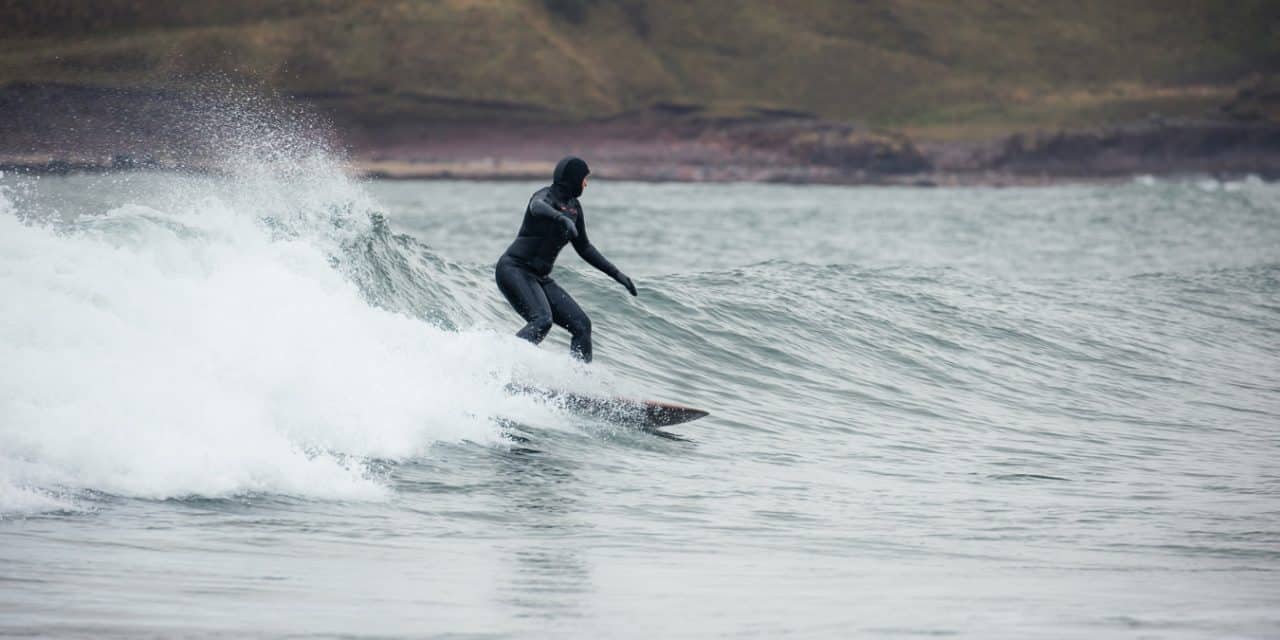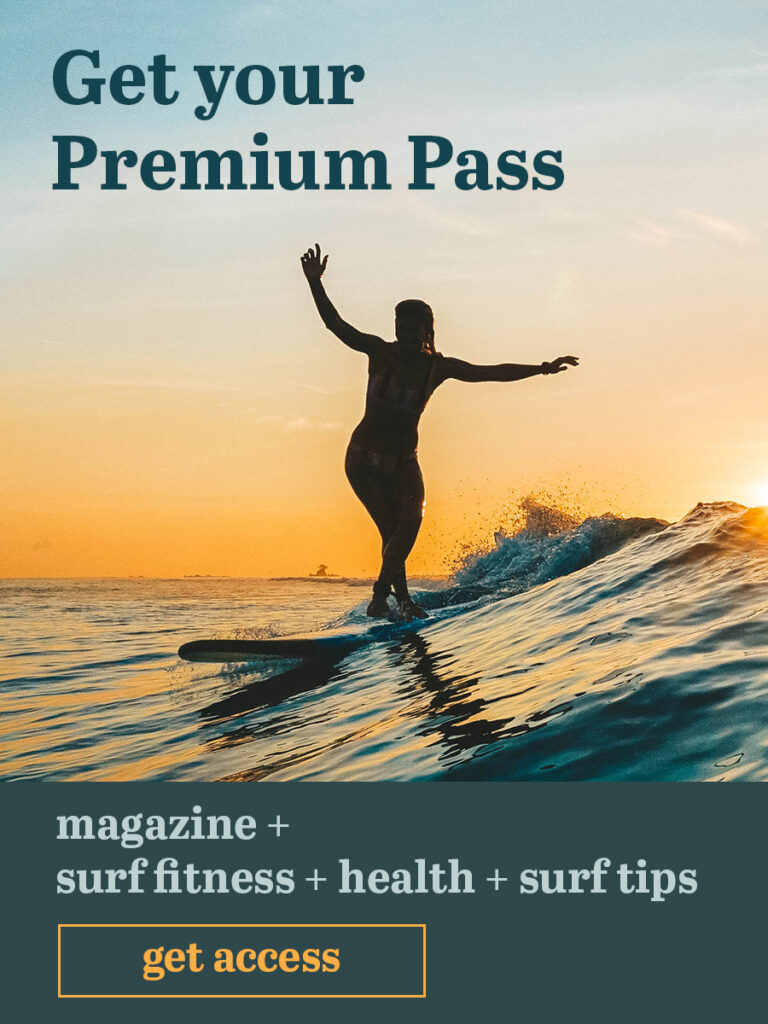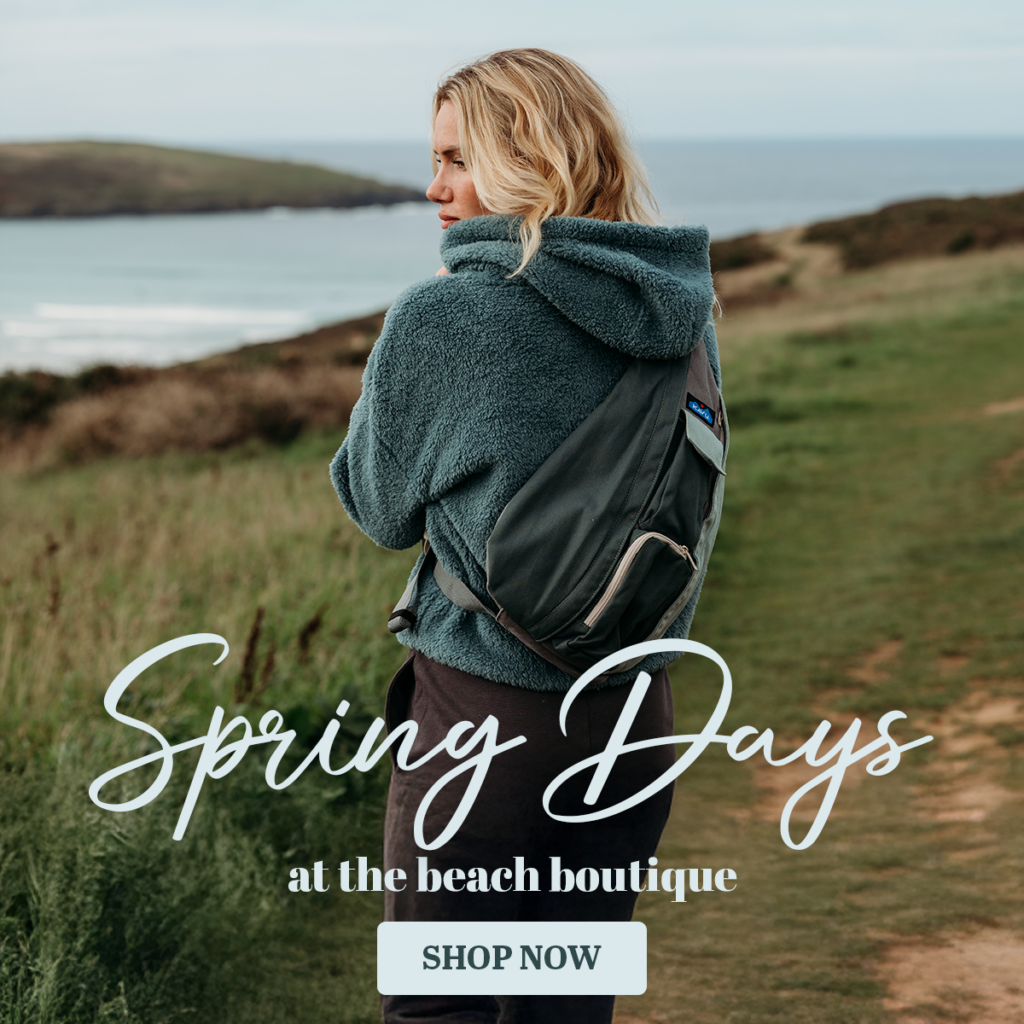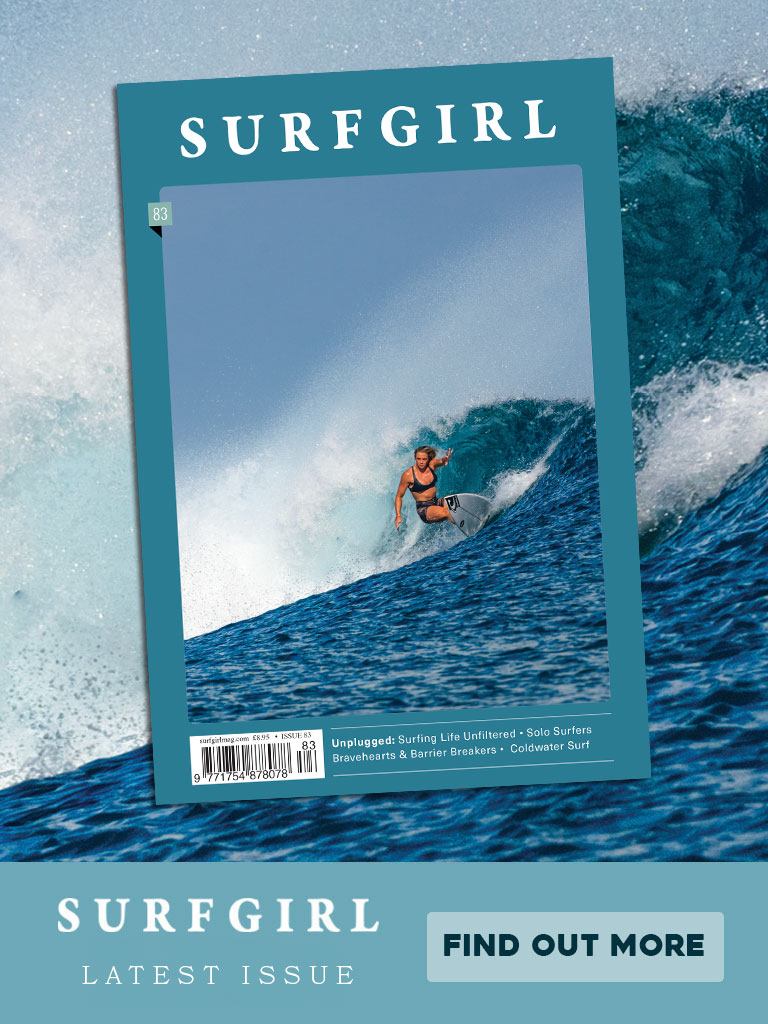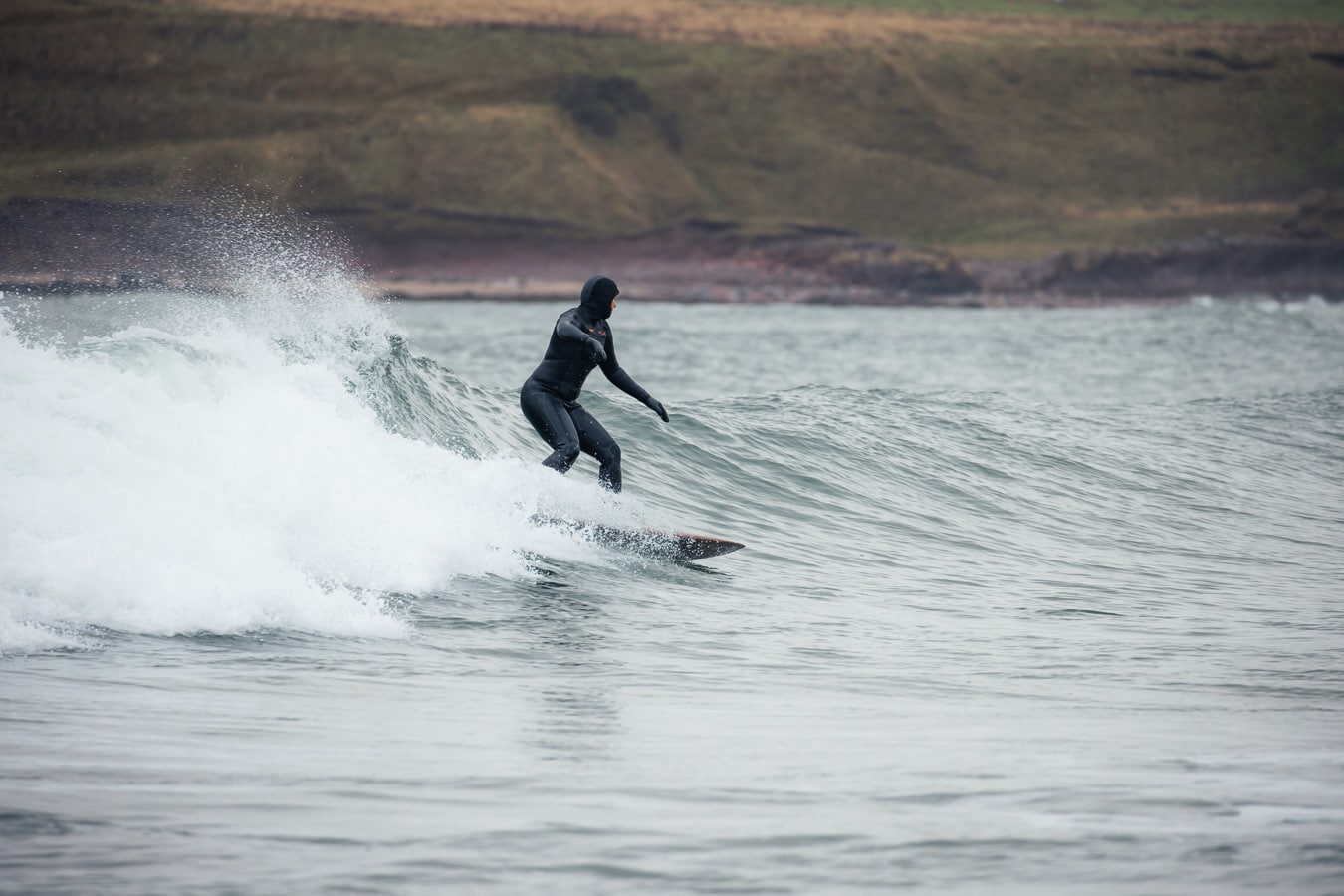
Groundswell Scotland has been delivering surf therapy to women across the country for several years now.
The organisation is led by Scottish surfer Sally Harris, who will probably be the most encouraging and positive person you come across in any line-up. She has become a prominent figure in the Scottish surf community for good reason, offering sage advice in and out of the water.
I’d known of Sally for a while but never had the chance to meet her in person, she’s always been so kind on any interaction we have online, so I knew we were going to get on. I managed to interview Sally and get a look first hand at what Groundswell are doing on the east coast of Scotland when I met her in between sessions at the Groundswell Surf Festival in September.
We bonded over our love of the ocean and Taki’s and touched on everything in between. The conversation offers a look into what Groundswell Scotland does, and why the work it’s doing is so important. Read on to check out our full conversation.
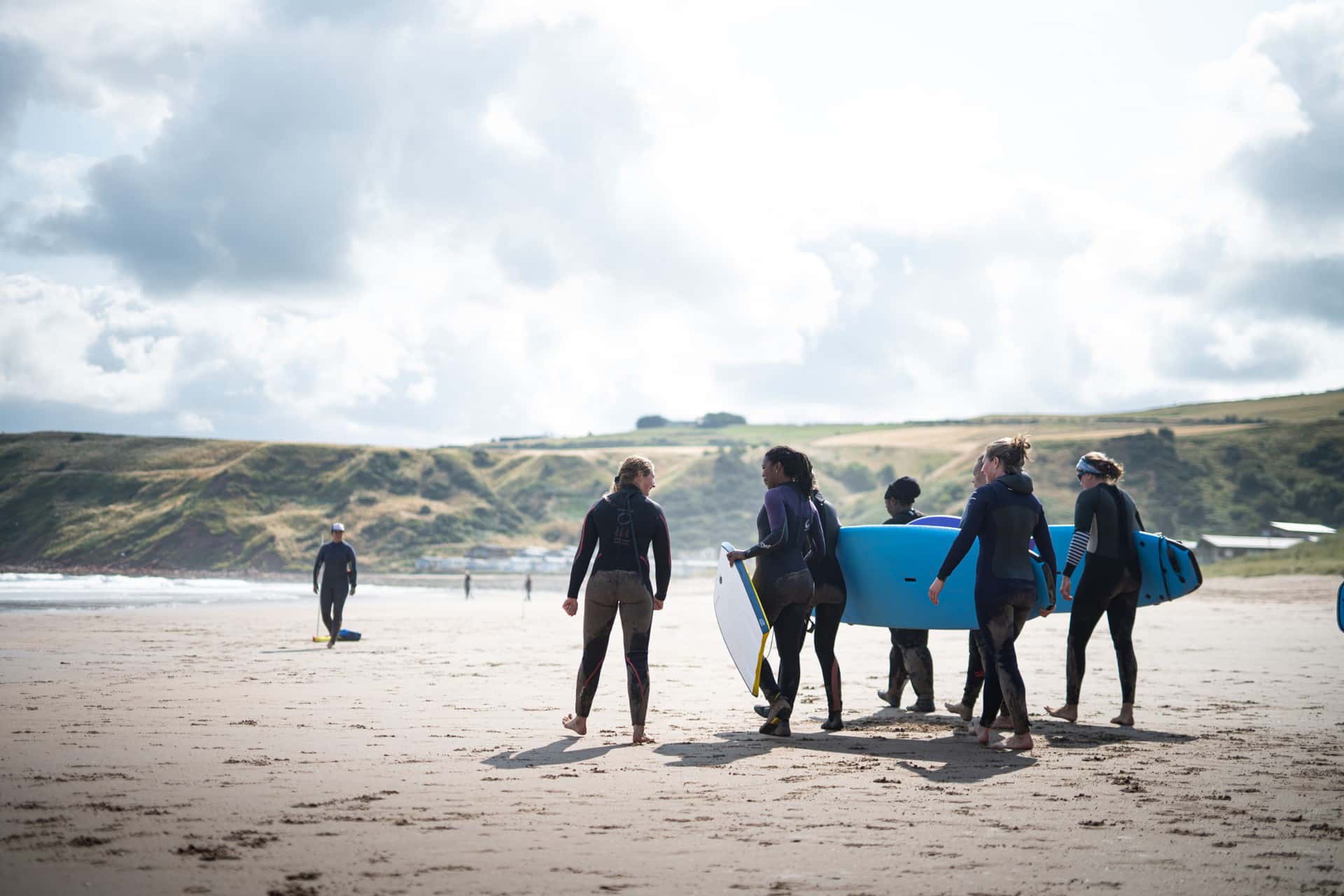
Sally, what is Groundswell Scotland?
Groundswell is a surf-therapy non-profit organisation which is providing curriculum for trauma recovery for women. So, we work with different non-profits and organisations such as Afro Caribbean Society and lots of other local organisations to hold a respectful space and learn emotional regulation tools together.
We do breathwork, we do yoga, we do journaling and set intentions for what we want to leave on the beach and in the ocean.
We also learn about social justice issues and environmental issues as we go through the curriculum. We also do one to ones, making sure that people are comfortable and ensure that we create a sustainable way of creating lasting friendships and community. We commit to helping people keep up with the tools they have learned through their journey with us. We also do one to one session with people who want the outlet but aren’t ready for a group setting.
Our training is accredited by a counselling organisation, but its all about the positives. It’s a fluid thing to do because you must listen and feel for the vibe and act appropriately to make sure its feeling okay for everyone. It’s a big space to hold then on top of that you’re a lifeguard and a coach trying to develop a person surfing. It’s the most dynamic job and evolving ourselves as we go. We now have six or seven facilitators, six surf lifeguards, and four surf coaches.
Groundswell, literally, is the low-pressure system that pushes down on the surface of the water and generates the swell which goes out in all directions and travels towards land which allows us to ride it as waves to the shore. So, it’s a real big energy exchange, it travels through the ocean and into our bodies to make us move. Then we kind of store that energy in our bodies through stoke. Which felt applicable to what I wanted to achieve. The word Groundswell felt right because it was about looking after yourself and looking after your community and sending out those ripples and waves as you go, and I loved that. Then when I was researching the word, I’d found that there was a women’s organisation already called that. So, through that I met Natalie Small who founded Groundswell in California, who came over and from there we started Groundswell Scotland.
That brings me on to my next question, what was your journey with surfing that led you to Groundswell Scotland?
Surfing means so much to me, my life is dedicated to it, and my family’s life is too. When I was younger, I was lucky enough that our friends had sailing boats, so we go on holiday and do that, and I loved it. I felt like it was something I was really good at and I felt like ‘this is me’ being in the sea, and knew this was what I wanted to do.
We didn’t have loads of money, but I wanted other people to experience what it was like being in the water, and I knew at 9 years old I wanted to be an outdoor instructor. That’s how it started before it progressed into wakeboarding and snowboarding. Eventually when I was 17, I left home and went to Australia and started surfing at 18. It was obsession from then.
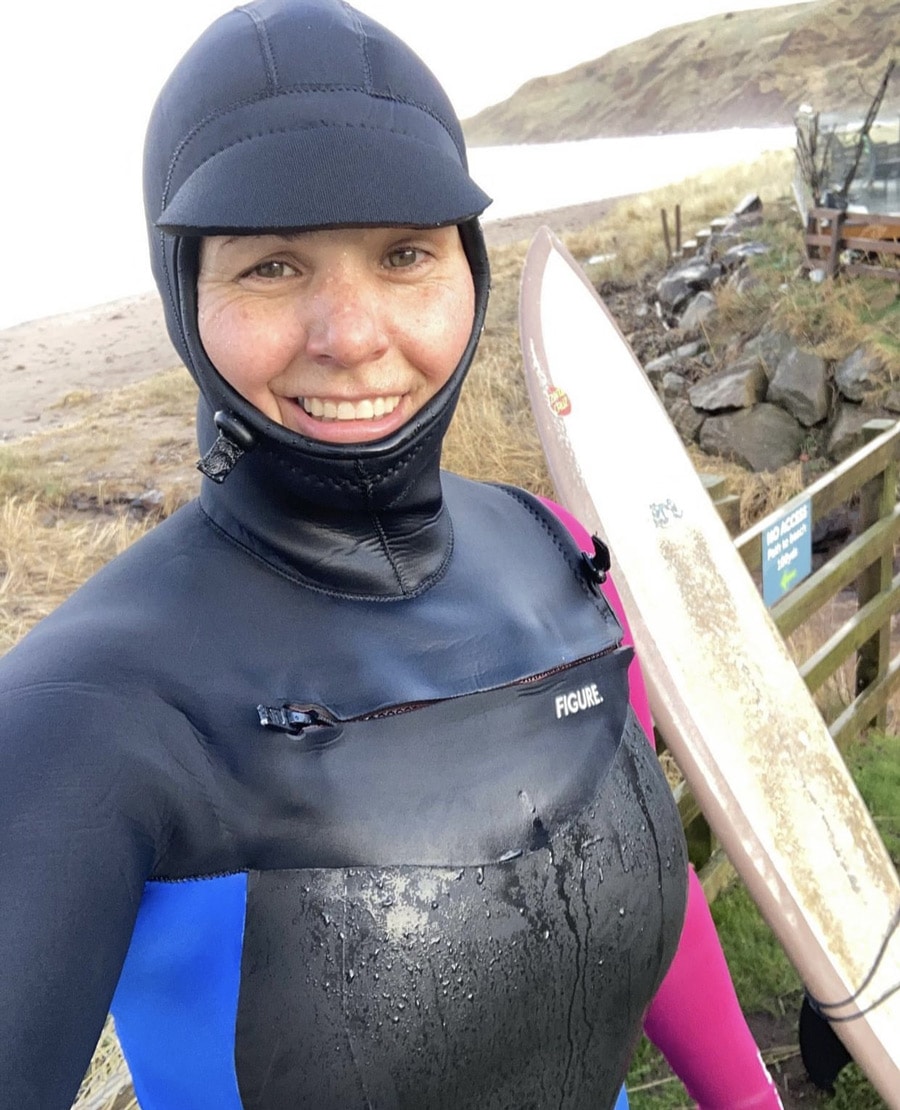
I came back to Scotland abruptly as a single mum. When I came back the surf scene had started to take off, Coast to Coast had just started and I was running outdoor activities with the council for young people in the justice system. So, from there we started working with Coast to Coast to run community groups, and I was buzzing to go surfing as part of my job, so eventually I ended up assisting with them and getting my coaching qualification in 2010. After that I worked in the third sector running leadership courses for young people in the outdoors and mental health research. I’d also started a surf lifesaving club in Dunbar, and we had hundreds of kids go through it which I ran for five years up.
Then me and some girls started the Joxi Girls doing trips and gatherings via Facebook trying to find some kinship in and out of the water. I’d wanted to continue work with women, I’m a female surfer and I feel passionate about the benefits of being in the ocean and the transformation it can bring to your life.
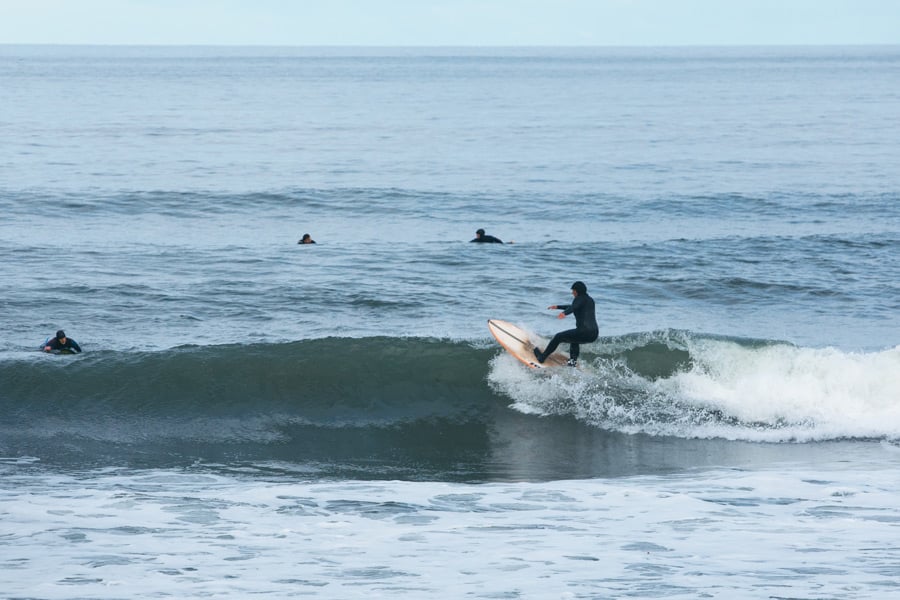
It’s amazing to see so many women in the ocean as well as organisations committed to holding space for women in this environment. Is this something you feel passionate about?
Absolutely. To have something where I was able to connect to how I am truly, was important. You know I’ve had incidents in the sea, with people being territorial over the sh**iest waves. At one point, I didn’t go to my local spot for one year, but I came through all of that, and this space that we have with groundswell opens up getting yourself together.
You know why you’re going in the ocean, whatever it is, and you’re not going to take a mind game with you or your business. You just let that go and you’re in the ocean with intention and allowing yourself to revitalise. That’s something we teach at Groundswell all the time.
In surfing it can be really easy to get frustrated when you’re not performing the way you want – how do you manage to stay conscious and surf with intention?
In the old days, when I was post pregnancy, I would be really hard on myself. But that just wouldn’t happen anymore because I’ve totally changed the head game around it, I just feel so lucky to be a surfer. I have a board and a way of getting to the beach, how lucky is that? Total privilege.
I really appreciate that and when I go in, I want to go in and really respect that we have this ability. I know how to protect myself more from other people now and stay grounded. If it’s not working, just come out and just reset, ask yourself how you want to be in the sea, maybe it’s a body surf or just sitting to decompress. I just stay conscious with how I’m being with the ocean.
I know you work to help other women through Groundswell, but do you think it’s helped you?
Massively. We’ve all done facilitator training and its all about looking after yourself first. We can’t run a wellbeing organisation and be stressed. I need to be in a good space, not all the time, but to keep myself in what’s called the blue mind zone in surf therapy is important. Groundswell has taught me a lot about how to do that.
It reminds me why I’m doing it; we do this for joy, it’s a celebration. Having a community with people honouring what we say, makes it more powerful. We honour each other’s feelings and give people a space to explore what they get from the ocean, and it goes both ways.
What would you say to women who are wanting to return to surfing or try surfing through Groundswell?
I think if it was the surf therapy programme, that can be quite a big conversation cause people can be at stages we’re they are hardly getting out of their house which is obviously a big transition. So, we would explain how we set up like what I said about journaling and creating that safe space, and that you can just be on the beach watching rather than going straight into the sea. They would also have a surf sister guiding them and helping them stay present which helps you become more Intune with any anxious feelings you may get and using the tools you learn to deal with them as this arise.
We have a lot of techniques to help people feel relaxed in the water, and that would be deep into the therapy programme. If they were coming to a surf bliss session or sand circles, its about coming with an open heart and mind, it’s a very different way of being and it can be quite confronting speaking in a circle of people, but you don’t need to speak. You can come join from wherever you are in your journey and just have that space to explore your relationship with the sea and yourself.
It really is a community. People come back and have made friendships. The sand circle session was started by someone who went through the surf therapy programme, she helped make that sustainable.
It sounds like you are just as invested in the journey, and it will make a huge difference to the people who come here. You’re invested in their journey and your own learning journey.
Thanks for noticing, it’s called feminine embodied leadership and we’re learning how to do this on purpose. We do other courses that aren’t about surf therapy and are more about what is leadership, how do women organise themselves, what are the resources, what’s wealth, and it looks a lot different from what we’ve been brought up with. So, it’s a lot to do with social justice but also how we organise ourselves as women to hold space and make changes we want to see happen.
Men can hold space in this way just as easily it’s just that its coming from a more feminine approach which is about collaboration, community, deep listening, empathy, and traits that might be seen as female. It’s showing us that we can run businesses this way, and we are. Our meetings start with intention setting and holding a safe space for us as a team also.


